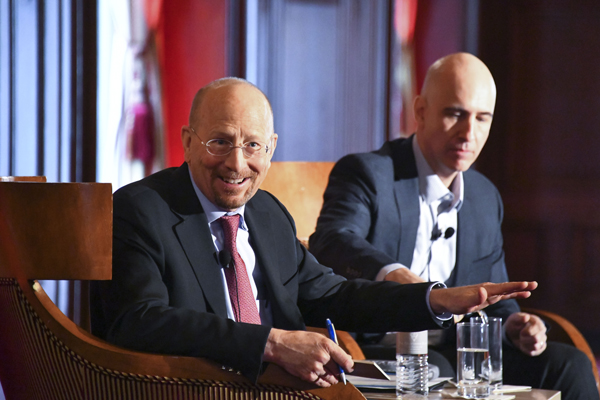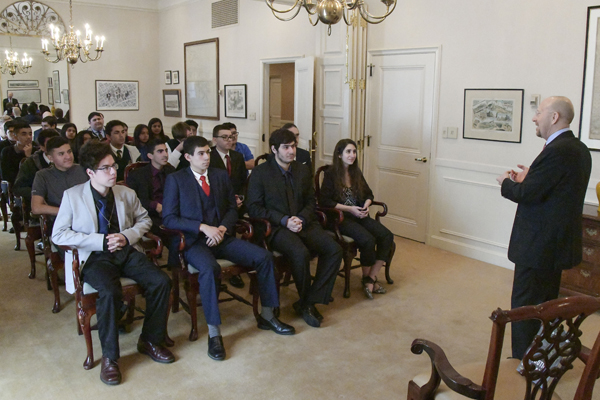 Richard Baldwin (left) and August Bradley.
Richard Baldwin (left) and August Bradley.
“Globotics is an ugly but memorable word,” said Richard Baldwin, Professor of International Economics at the Graduate Institute in Geneva. Globotics is the intersection of globalization and robotics, and it’s something that Baldwin says is going to disrupt our lives faster than we believe. The two have been around for a long time, but the difference now is the speed at which they are advancing together, as moderator August Bradley, host of Mind & Machine, pointed out. “In principle, AI will create millions of jobs, but human jobs aren’t being created fast enough,” said Baldwin, which is why he regularly calls this an ‘upheaval’.
Baldwin said that the integration of AI will hurt white collar workers much more than blue collar workers. “AI is pattern recognition just like high-level professionals who have years of experience that have taught them pattern recognition.” There is now AI that can diagnose whether a child has a cold or an ear infection faster and more accurately than a doctor. In this situation, the nurse’s job remains necessary in order to administer the tool for diagnosis. “If the white collar workers hurt by globotics come together with the blue collar workers who’ve been hurt in the last few decades we’ll have a holy war.”
There are three solutions to protecting workers, according to Baldwin. The first is that governments will help people change jobs, but he doesn’t foresee this happening in the US. The second, and most likely, is that individual industries will use regulations to slow down progress in order to catch up. This is already happening with ride-sharing – taxi companies are trying to slow down companies like Uber through regulations on insurance, drivers’ licenses, and business licenses. The third would be increasing employment protections, which would make it difficult to fire a human in order to use robots. Baldwin calls this the nuclear option because of the major setbacks to automation and globalization it would cause.
“Right now it’s the Wild West.” Global agreements need to be drawn up and signed in order to regulate. But Baldwin says it’s difficult to discuss what the landscape will look like in just five years. “The future will be so different we don’t even know. Listen to logic first.”
 Richard Baldwin spoke to LA students in a private Student Briefing.
Richard Baldwin spoke to LA students in a private Student Briefing.
